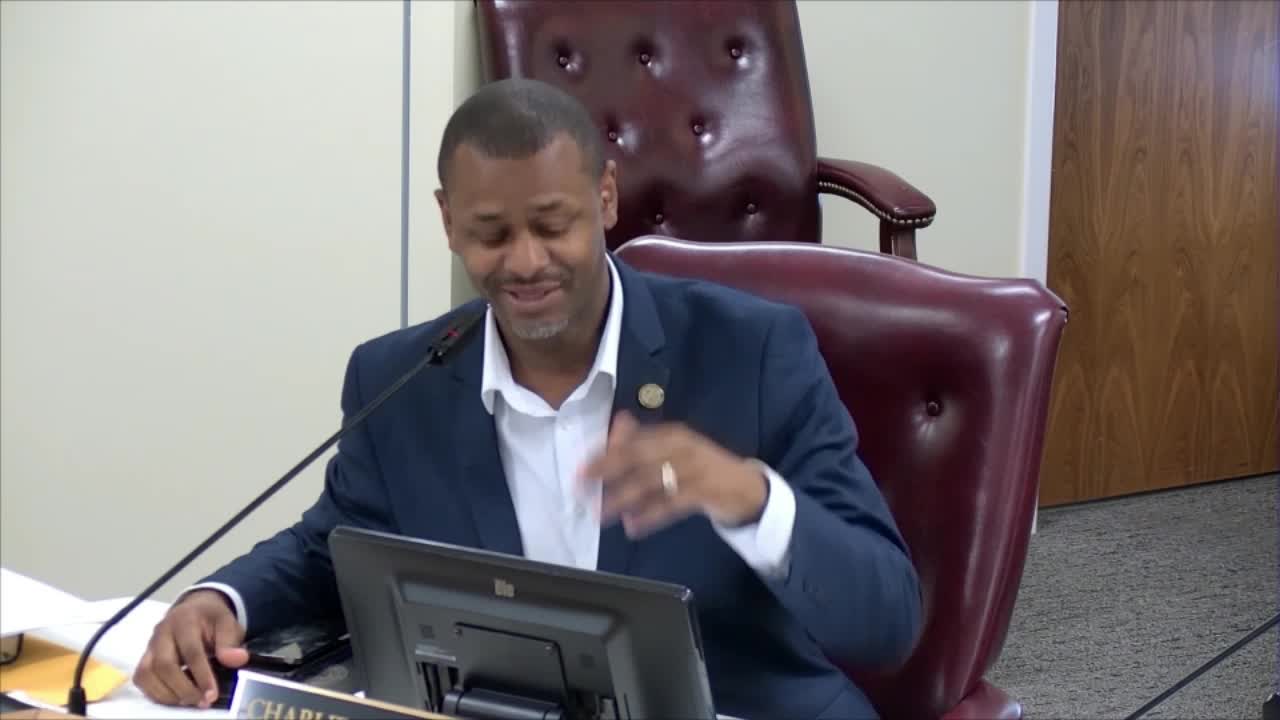Youth program transforms lives amid funding challenges
October 09, 2024 | Shelby County, Tennessee
This article was created by AI summarizing key points discussed. AI makes mistakes, so for full details and context, please refer to the video of the full meeting. Please report any errors so we can fix them. Report an error »

In a recent government meeting, discussions centered around the impact of educational programs aimed at supporting at-risk youth, particularly in the context of funding and community engagement. The meeting highlighted the efforts of local organizations, such as Pure Academy, which provides a tuition-free education to young men, focusing on personal development and vocational training.
Commissioner Caswell commended the work being done to prevent youth incarceration, noting that funding cuts at the state level have threatened effective programs that keep young people out of the prison system. He emphasized the importance of community support and the need for more resources to help these initiatives thrive.
The conversation also touched on the success stories emerging from these programs, including a student who recently signed with Colorado State University. This success was framed as a testament to the positive influence of the academy, which has transformed previously blighted areas into thriving educational environments.
Commissioner Brooks raised questions about the academy's enrollment and future expansion plans. The principal, Bridal Atwell, confirmed that while the current enrollment stands at 35 students, plans are in place to increase capacity at their new Chelsea location, which will accommodate up to 70 residents. The academy aims to serve students from across Shelby County, ensuring accessibility for those outside the immediate North Memphis area.
Funding for the academy was also a key topic, with discussions revealing that approximately 80% of its budget comes from private donations, allowing it to operate without charging tuition. The cost of running the program is about $36,000 per student, a fraction of the cost of incarceration, underscoring the financial efficiency of preventative education.
The meeting concluded with a motion to correct a budgetary typo related to the academy's funding, reflecting the ongoing commitment of local officials to support educational initiatives that benefit the community. Overall, the discussions underscored the critical role of community-based programs in shaping the futures of young people and the importance of sustained financial support to ensure their success.
Commissioner Caswell commended the work being done to prevent youth incarceration, noting that funding cuts at the state level have threatened effective programs that keep young people out of the prison system. He emphasized the importance of community support and the need for more resources to help these initiatives thrive.
The conversation also touched on the success stories emerging from these programs, including a student who recently signed with Colorado State University. This success was framed as a testament to the positive influence of the academy, which has transformed previously blighted areas into thriving educational environments.
Commissioner Brooks raised questions about the academy's enrollment and future expansion plans. The principal, Bridal Atwell, confirmed that while the current enrollment stands at 35 students, plans are in place to increase capacity at their new Chelsea location, which will accommodate up to 70 residents. The academy aims to serve students from across Shelby County, ensuring accessibility for those outside the immediate North Memphis area.
Funding for the academy was also a key topic, with discussions revealing that approximately 80% of its budget comes from private donations, allowing it to operate without charging tuition. The cost of running the program is about $36,000 per student, a fraction of the cost of incarceration, underscoring the financial efficiency of preventative education.
The meeting concluded with a motion to correct a budgetary typo related to the academy's funding, reflecting the ongoing commitment of local officials to support educational initiatives that benefit the community. Overall, the discussions underscored the critical role of community-based programs in shaping the futures of young people and the importance of sustained financial support to ensure their success.
View full meeting
This article is based on a recent meeting—watch the full video and explore the complete transcript for deeper insights into the discussion.
View full meeting
